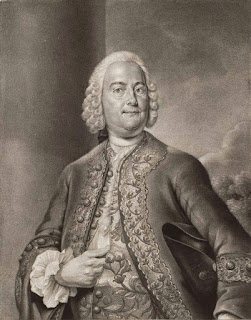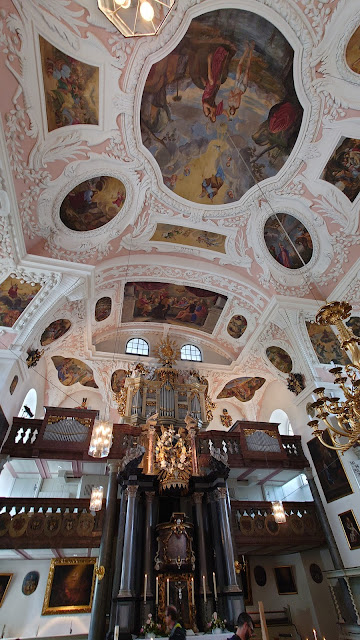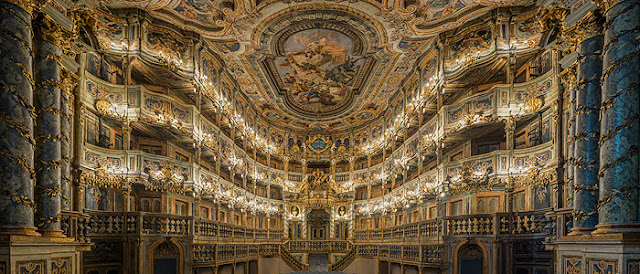_R%C3%A9my%20Br%C3%A8s-Feuillet_Yuriy%20Mynenko_%C2%A9_Clemens%20Manser_G.jpg) |
| Handel's Flavio at Bayreuth Baroque Opera Festival in 2023 Rémy Brès-Feuillet (in bath), Yuriy Mynenko - (Photo: Clemens Manser) |
The Bayreuth Baroque Opera Festival, based at the 18th century Margravial Opera House in Bayreuth, will be going to Venice for the 2025 festival. Running from 4 to 14 September 2025, next year's festival will feature a new production of Cavalli's 1666 opera Pompeo Magno. The festival's artistic director, countertenor Max Emanuel Cenic will direct and sing the title role with Sophie Junker as Giulia, and Valer Sabadus as Servilius. In the pit will be Cappella Mediterranea under its music director, Leonardo García Alarcón.
Cavalli's Pompeo Magno premiered in Venice at the Teatro San Salvatore in 1666. The libretto is by Niccolo Minato and the work was dedicated to Maria Mancini Colonna, wife of Lorenzo, Duke of Colonna, who was the niece of Cardinal Mazarin. The work came late in Cavalli's career and was in fact his final opera to be premiered in Venice. The plot concerns the political intrigue surrounding Gnaeus Pompeius Magnus (108 BC – 48), consul, then member of the triumvirate with Caesar and Crassus. The opera was revived in Bologna in 1692, and there were performances in the UK in the 1970s which made it onto disc conducted by Dennis Stevens, with Paul Esswood in the title role. [further details].
Also at the 2025 festival, there will be recitals from soprano Julia Lezhneva and countertenor Franco Fagioli [see image below] with the Orchestre de l’Opéra Royal under Stefan Plewniak, countertenor Carlo Vistoli with Cappella Mediterranea and Leonardo García Alarcón, and countertenor Rémy Bres-Feuillet (see image above) with with I Porporini and Gerd Amelung. The the Orchestre de l’Opéra Royal under Andrés Gabetta return for a second concert with mezzo-soprano, Marina Viotti. Mezzo-soprano Malena Ernman will explore the theme of nature in music with L’Arpeggiata under Christina Pluhar.
,%20Franco%20Fagioli%20(Poro),%20Maayan%20Licht%20(Alessandro)%20in%20Vincis%20Alessandro_%20Akt%201_(c)_Falk%20von%20Traubenberg.JPG) |
| Leonardo Vinci's Alessandro nell'Indie at Bayreuth Baroque Opera Festival in 2022 Jake Arditti, Franco Fagioli, Mayan Licht (Photo Falk von Traubenberg) |
Previous operatic rarities at Bayreuth have included an extravagantly theatrical production Handel's Flavio in 2023 [see my review] and Vinci’s Alessandro nell’Indie performed with an all male cast in 2022 [see my review]
Full details of the 2025 festival from the Bayreuth Baroque Opera Festival's website.

.jpg)
.jpg)
_Julia%20Lezhneva_Max%20Cencic_%C2%A9_Falk%20von%20Traubenberg.jpg)



%20mit%20m%C3%A4nnlichen%20T%C3%A4nzern%20in%20Vincis%20Alessandro%20nell'Indie_Akt%202_(c)_Falk%20von%20Traubenberg.JPG)


.jpg)

.jpeg)





.jpeg)